Daily Flyer - March 21, 2024
A voice of Ukraine to the West

Russian missile attack on Kyiv injured at least 13, including child
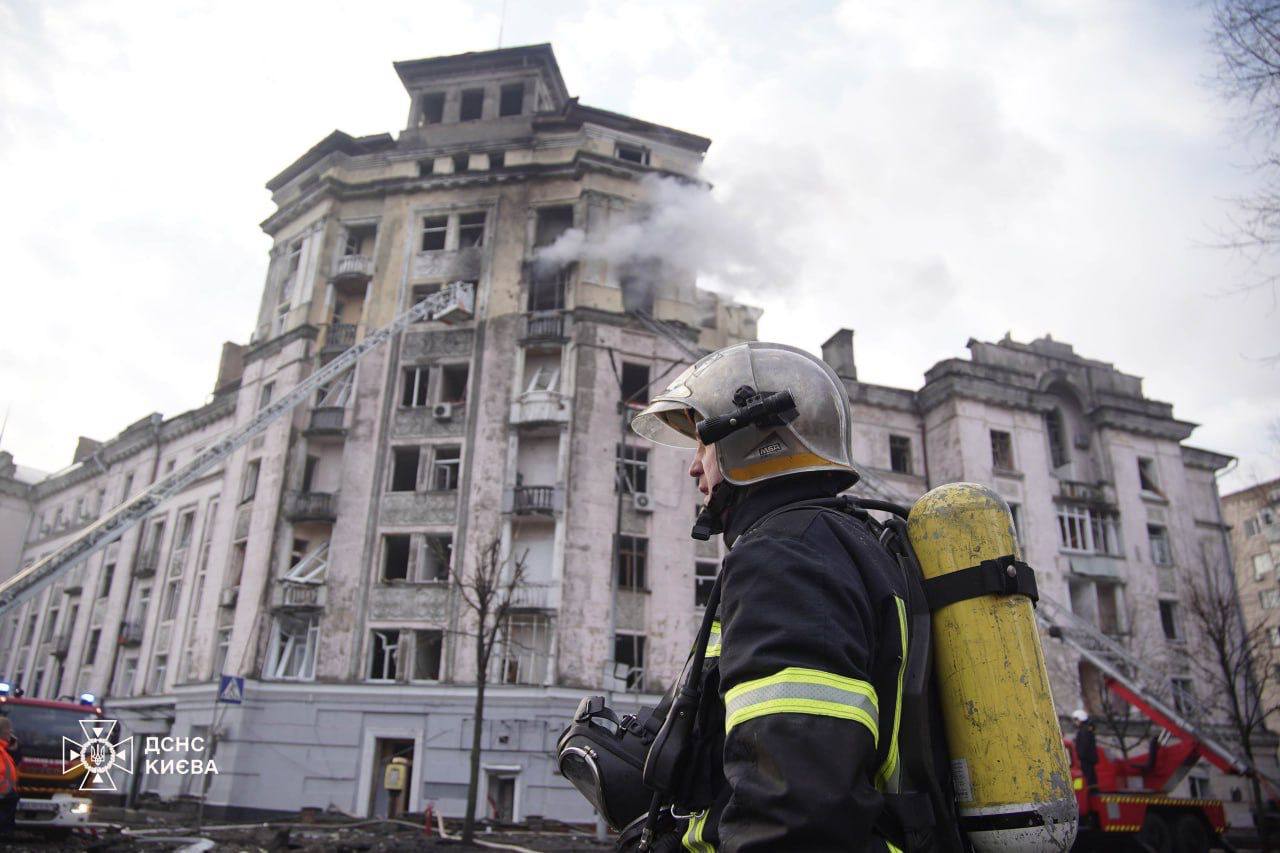
Russian forces carried out a missile attack on Kyiv in the early hours of March 21, causing significant damage to homes and infrastructure across the city and injuring at least 13 people, according to Kyiv Mayor Vitalii Klitschko.
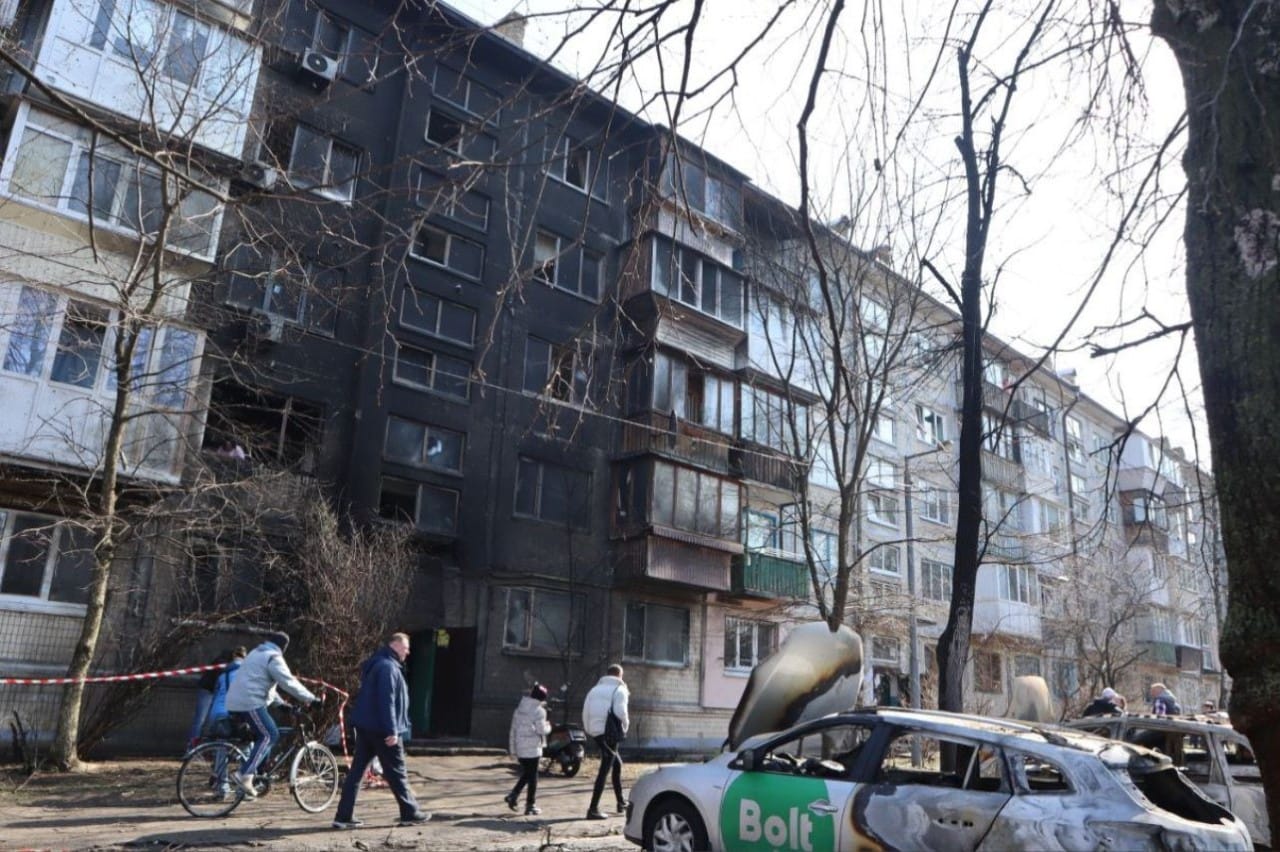
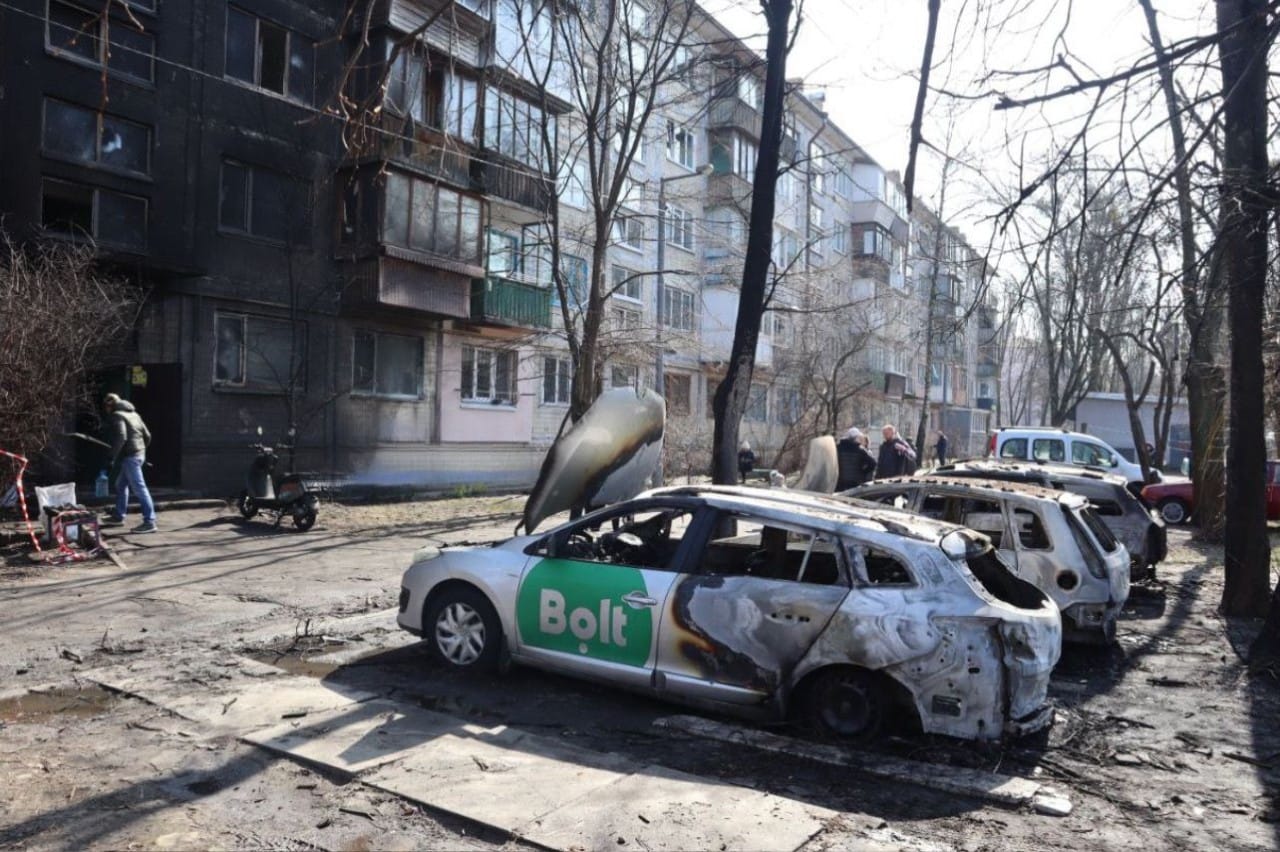
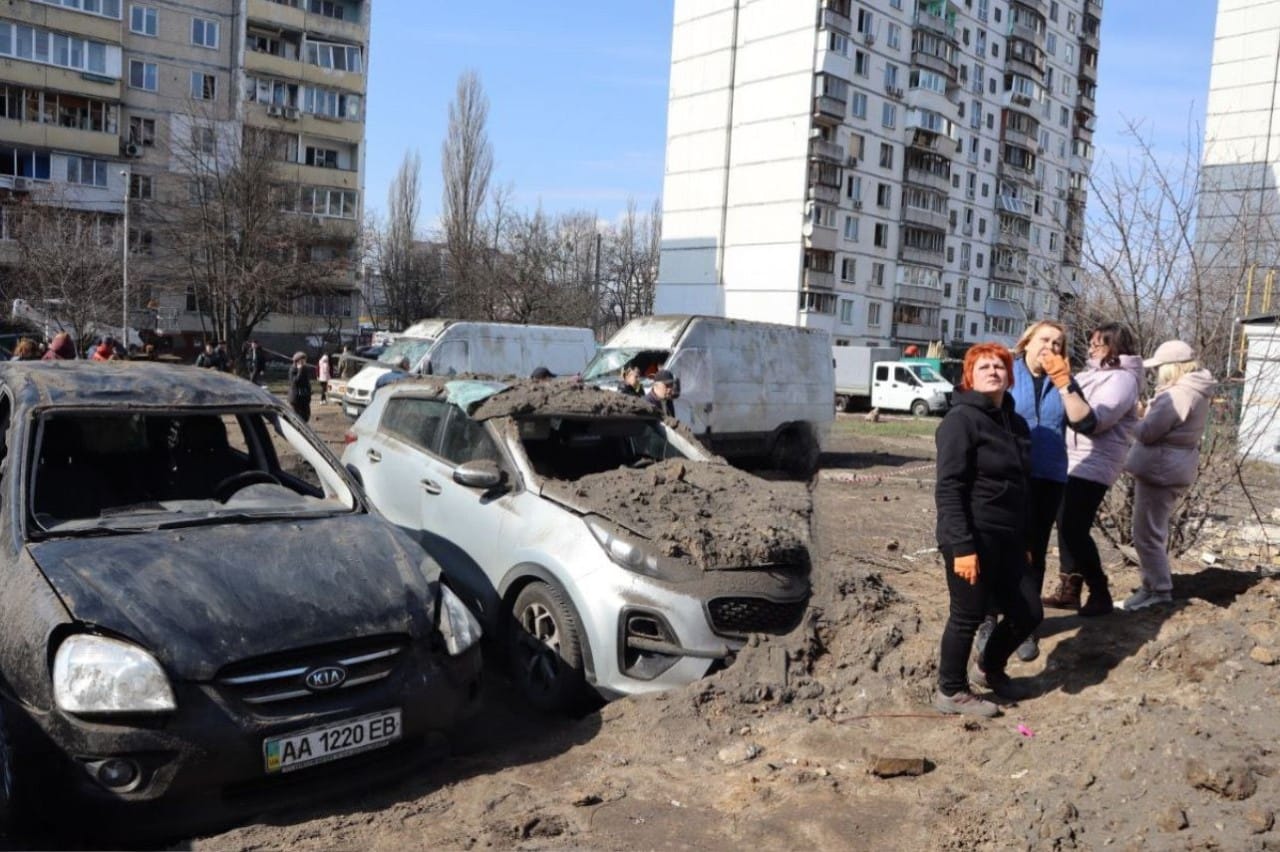
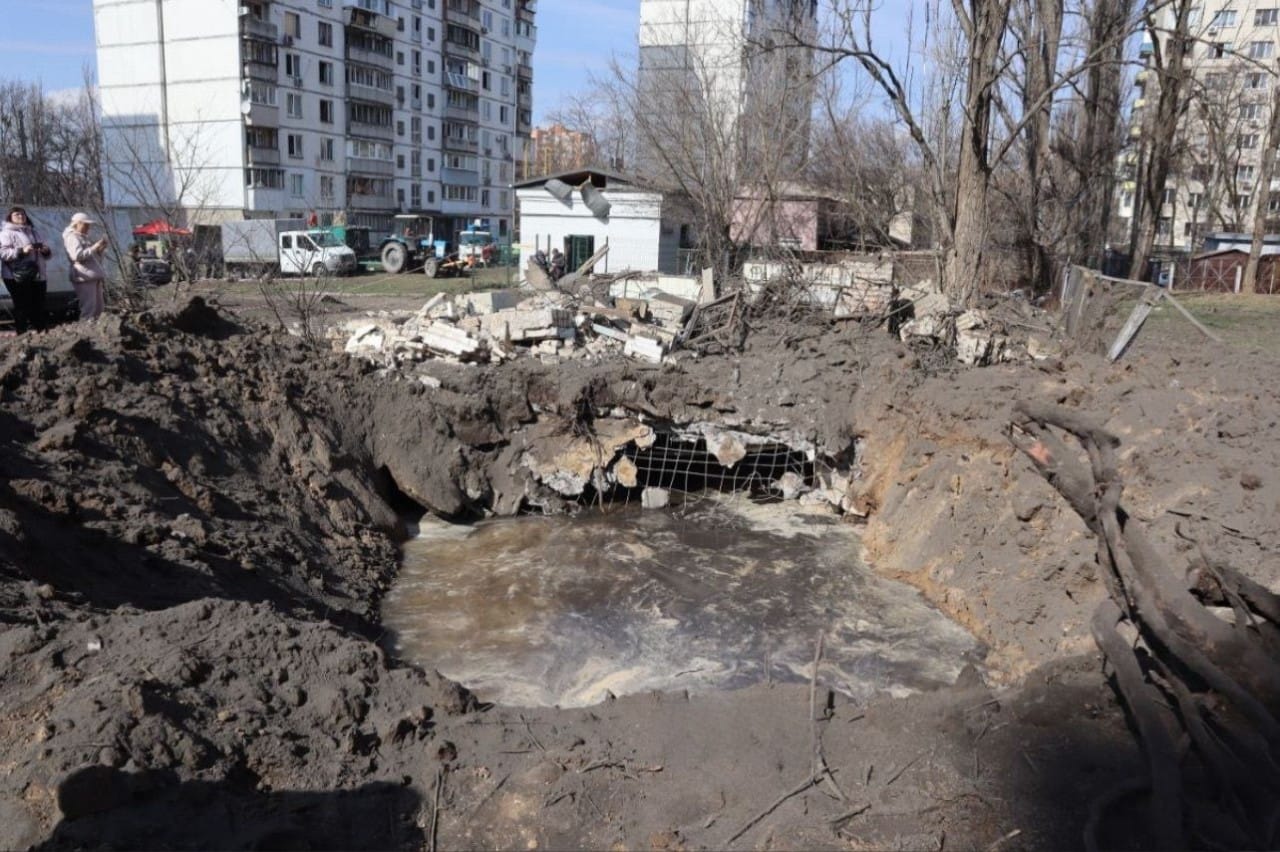
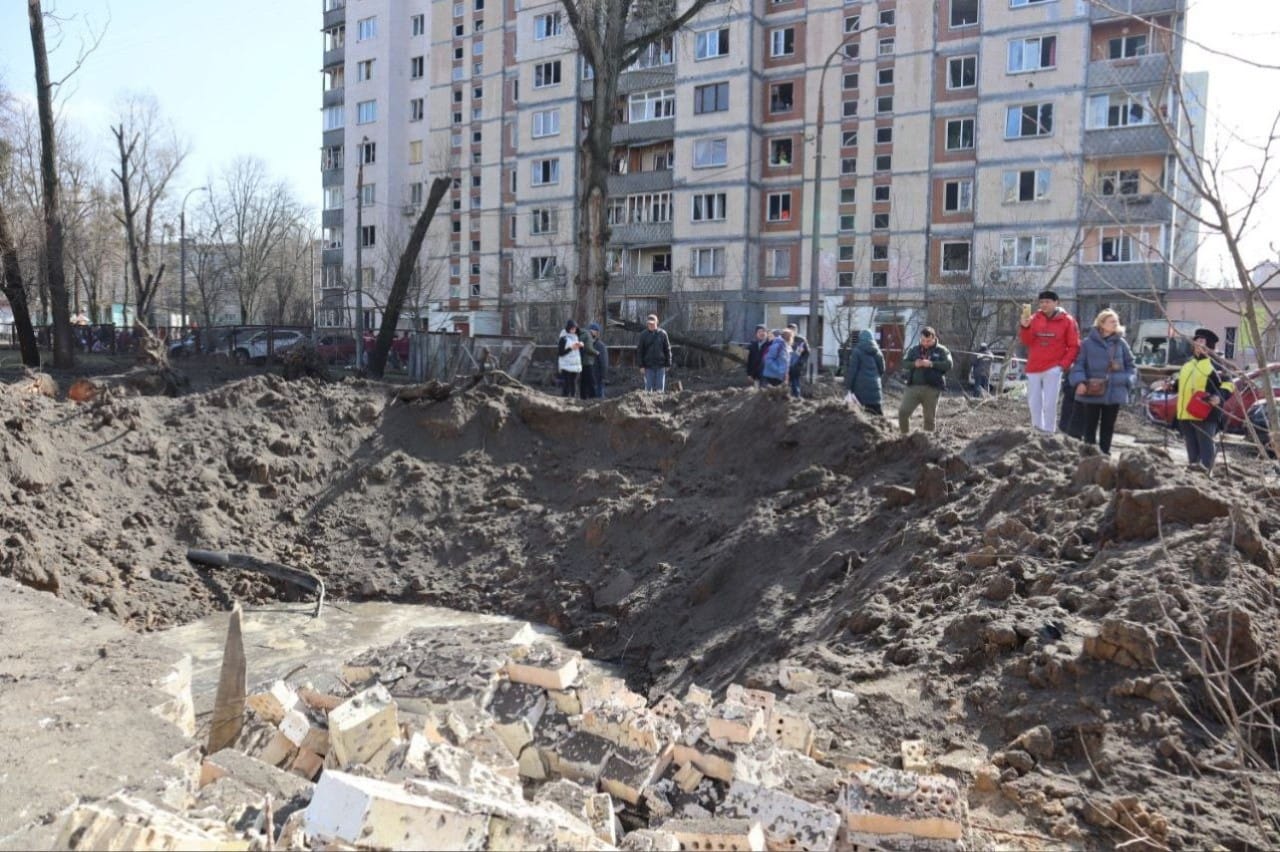
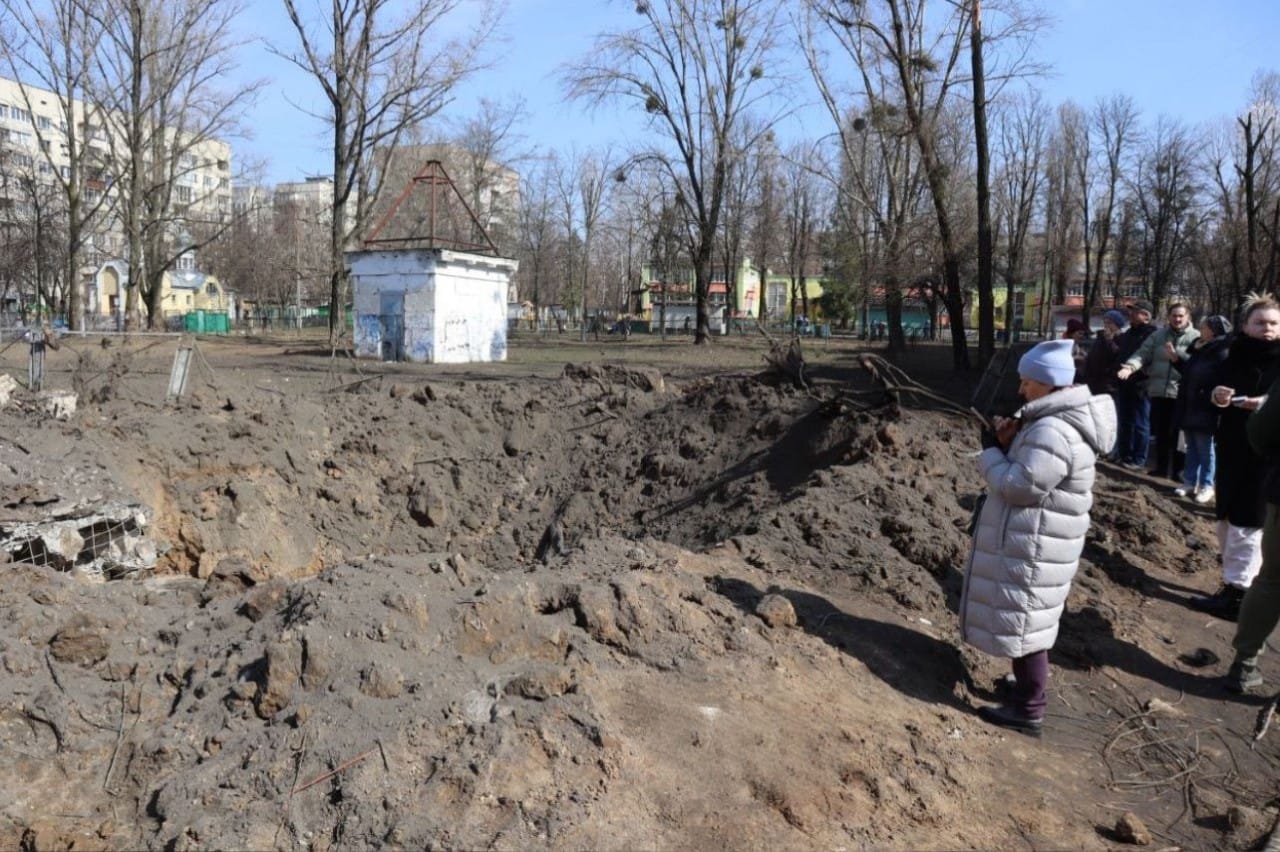
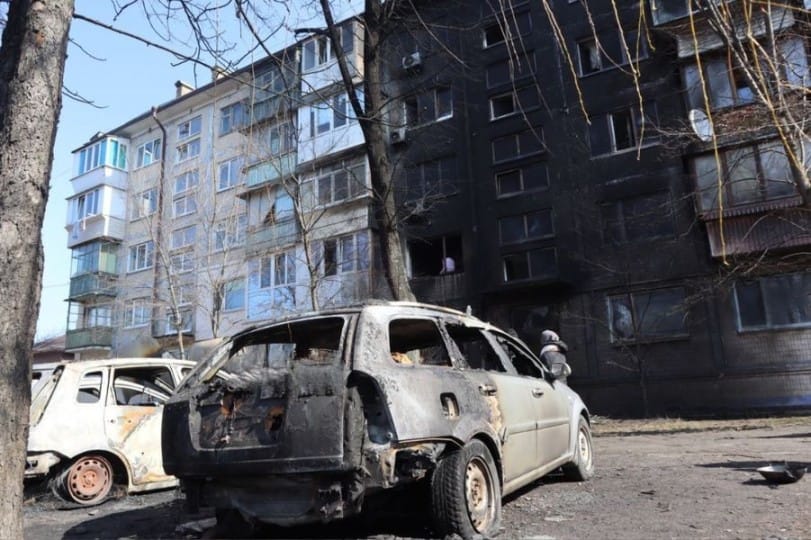
Among the injured, Serhii Popko, head of the Kyiv City Military Administration, confirmed that one victim from the Shevchenkivskyi district was an 11-year-old girl.
The attack resulted in damage to apartment buildings, a kindergarten, a business, infrastructure, and vehicles. Emergency services are actively responding to the attack sites, with ongoing assessments of the extent of the damage amid continued threats of further attacks.
Ukraine's Air Force reported that Russian forces launched two ballistic missiles along with 29 Kh-101/Kh-555 cruise missiles from locations in Rostov Oblast and Saratov Oblast. However, all 31 missiles were successfully intercepted by Ukraine's air defense systems.
Residents of Kyiv reported hearing multiple explosions around 5 a.m. on March 21, with reports indicating over a dozen explosions across the city.
In the aftermath of the attack, fires broke out in the Podilskyi district due to falling rock fragments, affecting a transformer substation and a two-story non-residential building. Additionally, a residential building in the same district caught fire.
The Svyatoshynsky district experienced damage to a kindergarten and two nine-story apartment buildings.
In the Shevchenkivskyi district, a residential building was hit, leading to evacuations as firefighters worked to contain the blaze. Cars in the vicinity were also reported to be on fire.
A warehouse belonging to the online retailer Rozetka sustained damage during the attack, with heavy damage to the building, vehicles, and goods. Fortunately, all 99 employees present at the time were unharmed as they had taken shelter.
Missile fragments struck civilian areas elsewhere in Kyiv Oblast, damaging private houses and causing injuries to two individuals, as reported by the regional prosecutor's office.
Ukraine downs 31 missiles overnight
Ukraine successfully intercepted all the missiles launched by Russia overnight on March 21, according to the morning update from the Air Force.
The report stated that Russian forces launched two ballistic missiles and 29 Kh-101/Kh-555 cruise missiles from 11 Tu-95MS strategic bombers, originating from the Volgodonsk area in Rostov Oblast and Saratov Oblast's Engels.
Kyiv was the primary target of the attack, with the missiles intercepted in Kyiv Oblast by anti-aircraft missile units of the Air Force and mobile fire units.
Despite the interception, the assault caused injuries to at least 10 residents of Kyiv, with two requiring hospitalization, as confirmed by Kyiv Mayor Vitali Klitschko. Six of the victims were from Kyiv's Shevchenkivskyi district, while the remaining four were from the Svyatoshynsky district.
The attack resulted in damage to multiple residential buildings, a kindergarten, commercial establishments, infrastructure, and vehicles. Emergency services have been deployed to the affected sites, and assessments are ongoing to determine the full extent of the damage.
Canada allocates $1.5 billion to Ukraine to finance budget deficit
Prime Minister Denys Shmyhal announced on March 21 that Canada has provided Ukraine with 2 billion Canadian dollars ($1.5 billion), earmarked to finance the budget deficit, including social assistance.
Since the onset of Russia's full-scale invasion, Canada has allocated nearly 7 billion Canadian dollars ($5.19 billion) in financial aid to Ukraine, according to Shmyhal's statement.
Shmyhal expressed gratitude to the Canadian people and government, emphasizing their steadfast support during these challenging times.
In addition to financial assistance, Canada pledged nearly $30 million to the Czech Republic's initiative to supply Ukraine with artillery shells, vital amid the country's ammunition shortages. Meanwhile, a $60 billion aid package for Ukraine from the U.S. remains stalled in Congress.
Furthermore, Canada has officially joined a drone coalition led by Latvia and the U.K., contributing over 100 Canadian-made specialized drone cameras from L3 Wescam to Ukraine. Defense Minister Bill Blair previously announced Canada's commitment to supply Ukraine with over 800 SkyRanger R70 multi-mission drones.
Russia to form 2 new armies by the end of 2024
Russian Defense Minister Sergei Shoigu announced during a meeting with other defense chiefs on March 20 that the Russian Armed Forces will establish two new combined arms armies, 14 divisions, and 16 brigades by the end of the year.
The move is seen by several observers as a response to the recently rigged presidential election, which secured Vladimir Putin another six years in power, prompting expectations of heightened mobilization efforts by Moscow.
Shoigu stated, "By the end of the year, we plan to form two combined arms armies and 30 formations, including 14 divisions and 16 brigades." He emphasized that this build-up aims to bolster Russia's military capabilities in response to emerging threats to its security.
Additionally, Shoigu revealed that a new army corps, a motorized rifle division, the Dnipro River Flotilla, and a riverboat brigade have already been established.
As Russia's full-scale invasion of Ukraine entered its third year, the General Staff of Ukraine's Armed Forces reported over 430,000 Russian casualties, while U.S. Defense Secretary Lloyd Austin estimated 315,000 killed and wounded.
The significant casualties prompted Russia to initiate a partial mobilization in the autumn of 2022. In January of the current year, the Russian Defense Ministry announced plans to increase the size of its military to 1.5 million personnel.
The timing of the mobilization announcement follows a pattern of Putin delaying such measures ahead of elections in Russia, a strategy noted by analysts.

